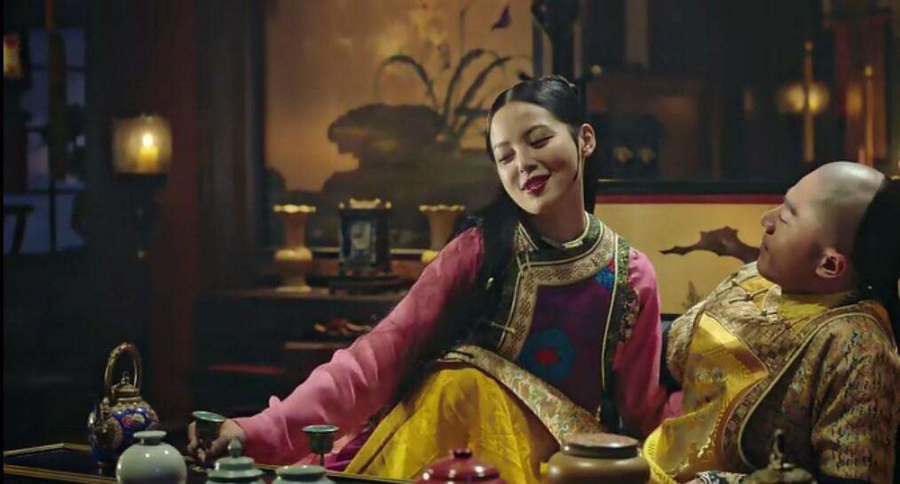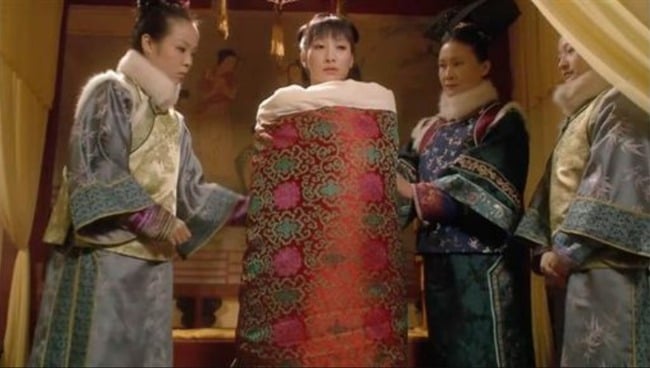After being inspected by the king, concubines need to be accompanied back to the palace by eunuchs, why?
You may have wondered why ancient Chinese concubines needed someone to accompany them when walking, right? Behind this action, there are actually many interesting reasons.
Recently, with the popularity of palace-themed dramas about the Qing dynasty, many viewers have started to learn more about life in the last feudal dynasty of China.
Upon careful observation, you will notice that in the palace, concubines always need someone to accompany them when walking. So what is the reason behind this action?

Even after meeting the emperor, concubines still need to be accompanied back to the palace. Is it because they receive special favor from the king?
In reality, it is not because of that. The reason is that concubines must adhere to strict regulations regarding rest hours, even after the king’s inspection. The purpose of this is to protect the emperor’s health and maintain balance in palace life.
In ancient Chinese history, class discrimination was often clearly displayed. The need for someone to accompany concubines when they go out is a way to demonstrate their social status.
What is important is that this action only appears when concubines go out, while in normal situations, no one does this. This shows the difference in etiquette and status. As noble concubines in the palace, even walking requires someone to accompany them.
Another reason is that in the feudal period of China, noble women often had bound feet, making movement inconvenient and prone to falling. Therefore, whenever concubines leave the palace, they need someone to accompany them to assist in their movement.

Furthermore, due to the small size of bound feet, concubines cannot perform strenuous tasks and move around a lot. Noble concubines when entering the palace are often restricted from leaving the Forbidden City for life. When they need to leave the palace, they will have eunuchs or palace maids to accompany them for assistance.
In ancient Chinese aesthetics, small feet are considered a symbol of beauty. This belief has made many concubines unwilling to move in order to protect their tiny feet.
In addition, upon entering the palace, concubines do not have the freedom to move like commoners. When going out of the palace, they always have to have attendants accompanying them. Palace maids and eunuchs will assist concubines to demonstrate their nobility and honor their status.
Another important point to emphasize is that the shoes worn by concubines in ancient China are different from modern shoes. Nowadays, even with high heels, their design still allows women to walk without support.
However, in the Qing dynasty, the shoes worn by concubines called “lotus basin shoes” have a heel in the middle. This type of shoe is quite difficult to maintain balance, even when walking, it can lead to falling. Therefore, when wearing lotus basin shoes, concubines always need someone to support their balance.
In addition to the main reasons mentioned, there are also some additional explanations about why concubines in the palace always need someone to accompany them. Another important reason is that in the palace, rules and rituals play an important role in differentiating noble classes from commoners.
The palace has many regulations regarding behavior and style of movement, contributing to creating an exquisite and elegant beauty. The act of concubines walking with an accompanying person reflects this beauty, in line with the image of noble women.
The graceful movement of women in the palace, always accompanied by a attendant, evokes a sense of pity in the emperor. Because the emperor cherishes the beauty of weakness, women in the palace are required to move according to such etiquette.







































